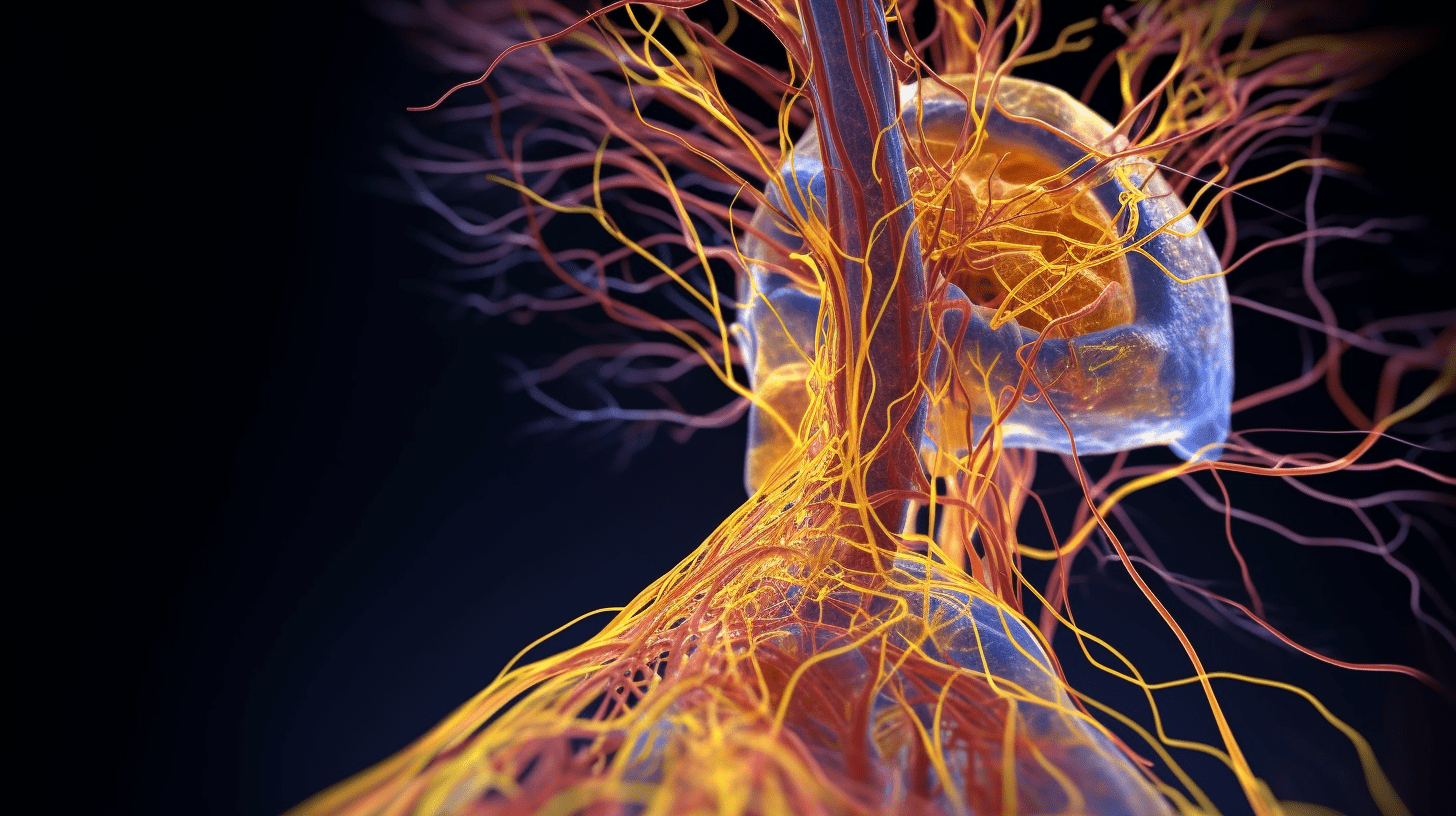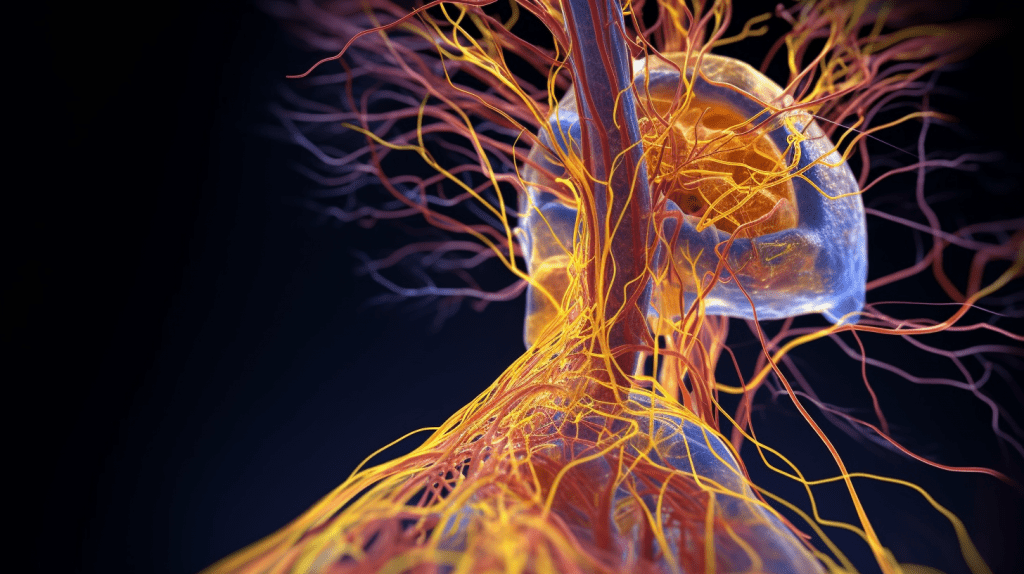Challenges and Solutions in CNS Drug Delivery
 2 years ago
By John Lewis Elopre
2 years ago
By John Lewis Elopre

The human central nervous system (CNS) is a complex and delicate network responsible for controlling various bodily functions and cognitive processes. As we delve into the realm of treating CNS disorders, one of the significant challenges lies in effectively delivering drugs to this intricate system. This article explores the obstacles faced in CNS drug delivery and potential solutions to address them.
Understanding the Central Nervous System (CNS) Drug Delivery
Importance of Targeting the CNS
The CNS consists of the brain and spinal cord, playing a crucial role in transmitting signals throughout the body. Treating neurological disorders, such as Alzheimer’s, Parkinson’s, or brain tumors, necessitates drugs that can precisely reach the affected areas within the CNS.
Barriers in CNS Drug Delivery
Before discussing the specific challenges, it is essential to understand the barriers that impede drug delivery to the CNS. The primary obstacle is the blood-brain barrier (BBB), a protective shield that prevents harmful substances from entering the brain. While it safeguards the brain, it also limits the delivery of therapeutics.
Challenges in CNS Drug Delivery
Blood-Brain Barrier (BBB) Impermeability
The BBB’s tight junctions restrict most drugs from crossing into the brain, making it difficult for traditional medications to reach their target. Overcoming this impermeability is crucial to ensuring effective CNS drug delivery.
Drug Dosage and Efficacy
Even if some drugs manage to breach the BBB, achieving the required dosage in the CNS can be challenging. Moreover, ensuring the drug’s efficacy without causing adverse side effects is a delicate balancing act.
Specificity and Selectivity
CNS disorders often require highly specific treatments tailored to individual patients. Achieving this level of specificity and selectivity in drug delivery is an ongoing challenge.
Non-invasive Delivery Methods
Many current drug delivery methods involve invasive procedures, which can pose risks and discomfort to patients. Finding non-invasive delivery methods is essential for improving patient compliance and overall treatment outcomes.
Potential Solutions to CNS Drug Delivery Challenges
Nanoparticle-based Drug Delivery Systems
Nanotechnology has shown promise in designing drug carriers capable of crossing the BBB and delivering drugs to targeted brain regions. Nanoparticles can encapsulate drugs, protecting them until reaching the CNS, enhancing drug efficacy, and reducing side effects.
Brain-targeted Drug Delivery
Innovative techniques, such as Trojan horse approaches, are being explored to trick the BBB and deliver drugs precisely to specific CNS locations. These methods hold potential for delivering drugs to previously unreachable areas.
Intranasal Drug Delivery
The nasal route offers an alternative pathway for drug delivery to the CNS. Intranasal administration allows drugs to bypass the BBB, entering the CNS directly through olfactory or trigeminal nerve pathways.
BBB Disruption Techniques
Focused ultrasound and microbubble-assisted BBB disruption have emerged as non-invasive methods to temporarily open the BBB, enabling drugs to pass through. This approach shows promise for targeted drug delivery.
Gene Therapy for CNS Disorders
Gene therapy holds the potential to treat CNS disorders at the genetic level. By delivering therapeutic genes directly to affected brain regions, gene therapy offers a novel approach to managing neurological conditions.
Advancements and Innovations in CNS Drug Delivery
Nanotechnology and Drug Carriers
Nanoparticles, liposomes, and dendrimers are some of the advanced drug carriers that show great potential in enhancing CNS drug delivery.
Peptide-based Drug Delivery
Peptides can act as carriers or ligands that facilitate drug transport across the BBB, improving drug delivery efficiency.
Biodegradable Implants
Biodegradable implants can release drugs gradually, providing sustained drug delivery to the CNS, reducing the need for frequent administrations.
Future Prospects of CNS Drug Delivery
Personalized Medicine for CNS Disorders
Advancements in genomics and personalized medicine are paving the way for tailor-made treatments based on individual patient profiles.
Neuroimaging Advancements
Sophisticated neuroimaging techniques will allow better visualization and understanding of CNS disorders, aiding in targeted drug delivery.
Artificial Intelligence in Drug Development
Artificial intelligence and machine learning will play a pivotal role in designing drug candidates with higher chances of successfully reaching their CNS targets.
Conclusion
The challenges of CNS drug delivery are immense, but the potential solutions offer hope for transforming the treatment landscape of neurological disorders. With advancements in nanotechnology, gene therapy, and innovative drug delivery methods, we are gradually overcoming the obstacles that have long hindered effective CNS drug delivery. As research progresses, we can anticipate more personalized and efficient treatments for CNS disorders, significantly improving patients’ quality of life.
FAQs
- Is CNS drug delivery safe for patients?
- CNS drug delivery methods are rigorously tested for safety and efficacy before clinical use. Researchers prioritize patient well-being and adhere to strict regulatory standards.
- How long does it take for CNS drugs to show effects?
- The onset of drug effects varies depending on the drug, dosage, and the individual’s response. Some drugs may show immediate effects, while others may require more time.
- Are there any alternative therapies for CNS disorders?
- Alongside traditional pharmacological treatments, complementary therapies such as physical therapy, occupational therapy, and counseling can aid in managing CNS disorders.
- Can nanotechnology cause side effects in CNS drug delivery?
- Nanotechnology-based drug delivery systems undergo extensive testing to minimize adverse effects. When appropriately designed, these carriers offer targeted and safer drug delivery.
- How can patients contribute to CNS drug delivery research?
- Patients can participate in clinical trials, share their experiences, and support advocacy groups that promote research and awareness for CNS disorders.

Navigating the Complex World of Global Regulatory Affairs in Oncology
In today's fast-paced global pharmaceutical landscape, the regulatory affairs sector plays a pivotal role in ensuring the safety, efficacy, and market access of oncology drugs. As the demand for innovative cancer therapies continues to grow, understanding the intricacies of global...
2 years agoNavigating the Complex World of Global Regulatory Affairs in Oncology
In today's fast-paced global pharmaceutical landscape, the regulatory affairs sector plays a pivotal role in ensuring the safety, efficacy, and market access of oncology drugs. As the demand for innovative cancer therapies continues to grow, understanding the intricacies of global...
2 years ago
Overcoming the Hurdles: Navigating the Challenges in Oncology Clinical Trials
In the world of medical research, oncology clinical trials are at the forefront of innovation and discovery. These trials play a crucial role in advancing our understanding of cancer and developing more effective treatments. However, the path to successful oncology...
2 years agoOvercoming the Hurdles: Navigating the Challenges in Oncology Clinical Trials
In the world of medical research, oncology clinical trials are at the forefront of innovation and discovery. These trials play a crucial role in advancing our understanding of cancer and developing more effective treatments. However, the path to successful oncology...
2 years ago
Embracing a Patient-Centric Approach in Oncology Trials
In the realm of healthcare and medical research, the term "patient-centric" has gained significant traction in recent years. This shift in focus towards prioritizing patients' needs and preferences is not only transforming the healthcare industry but is also making waves...
2 years agoEmbracing a Patient-Centric Approach in Oncology Trials
In the realm of healthcare and medical research, the term "patient-centric" has gained significant traction in recent years. This shift in focus towards prioritizing patients' needs and preferences is not only transforming the healthcare industry but is also making waves...
2 years ago